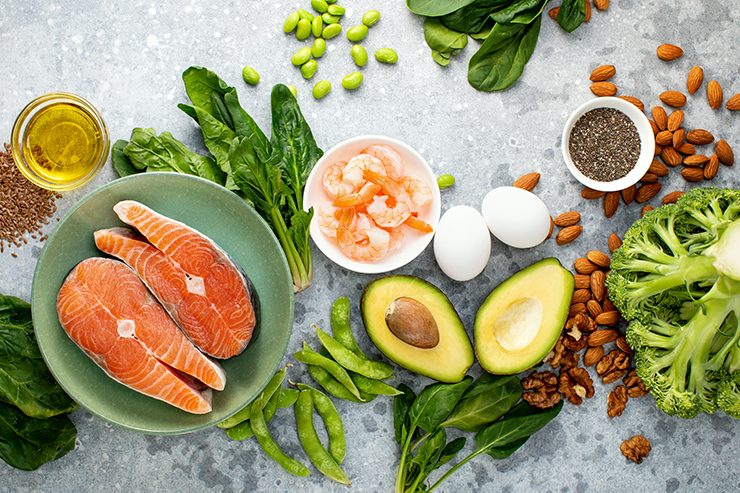
The AREDS Formulation
The National Institutes of Health (NIH) is the primary agency of the United States government responsible for biomedical and public health research. In 2001, the NIH launched the Age-Related Eye Disease Study (AREDS), a major clinical trial designed to learn more about the causes and risk factors of age-related macular degeneration (AMD) and cataracts, and to evaluate the effect of certain vitamins and minerals on those disease factors.
This first-of-its-kind study was specifically looking at vitamin C, vitamin E, beta-carotene, and zinc. Results from the study showed that high levels of antioxidants and zinc significantly reduced the risk of advanced AMD and vision loss associated with the disease. Unfortunately, these same nutrients appeared to have no significant effect on the development or progression of cataracts.
Researchers with the study took their findings and created a nutritional supplement called the AREDS Formulation, designed specifically to reduce the risk of developing advanced age-related macular degeneration. The original AREDS formulation contains vitamin C, vitamin E, beta-carotene, zinc, and copper.
AREDS2: A New Formulation
In 2006, the same NIH-based research group began a second study called AREDS2 to determine if they could improve on the original AREDS formulation. This new trial involved adding the antioxidants lutein and zeaxanthin, adding omega-3 fatty acids, removing beta-carotene, and lowering the original dose of zinc.
The new trial results inspired a new and improved formulation called AREDS2 that reduced some risks associated with beta-carotene intake in people who smoke and incorporated new findings of nutritional experts to lower the amount of zinc.
There is no known treatment for or sure-fire prevention of AMD. The AREDS formulations have been shown to delay the progression of advanced AMD and help people with intermediate AMD, or advanced AMD in one eye maintain healthy vision longer. The participants in the first AREDS trial have now been followed for 10 years, and the benefits of the AREDS Formulation have persisted over this time.
Big Pharma or Better Kitchen
There is definitely a place for pharmaceuticals in the care and treatment of your eyes, but the AREDS studies didn’t set out to synthesize new pharmaceutical medicines or create new drugs, they incorporated high doses of readily available vitamins and nutrients into the diet through a dietary supplement.
By definition, a dietary supplement is a product manufactured to supplement essential nutrients, vitamins, and minerals in the diet with nutrients that are either extracted directly from food sources or created synthetically. While people have been enjoying the benefits of dietary supplements for some time, humans have been enjoying the benefits of healthy whole foods diets where these nutrients exist naturally for considerably longer!
The NIH studies and the work they’ve done are essential in advancing our understanding of what is needed to treat diseases of all kinds. By understanding the AREDS formulations, and having those as a foundation, we can turn to supplements, or we can turn to the kitchen where shifting our focus to intentional nutrition can also benefit our eyes and help keep our vision healthy.
The Visionary Kitchen
Dr. Sandra Young, OD, is a member of the Ocular Wellness & Nutrition Society, a graduate of Pacific University, College of Optometry, and an award-winning author with over 50 years of experience in the kitchen.
Dr. Young’s latest contribution is the Visionary Kitchen, “a complete recipe, food, and nutritional guide designed to support the health and well-being of ocular tissue. Visionary Kitchen is based on the nutritional principles of long-term studies such as AREDS and AREDS2. Order a copy of the book, learn about ocular nutrition, and then, join us in ogling over these beautifully photographed dishes.” (https://visionarykitchen.com/about-us)
While supplements have their place, there is no supplement for quality, intentional whole-food cooking. Proper nutrition, highlighting the vitamins and minerals necessary for optimum vision and eye health, can be as simple as thoughtfully adjusting your diet, and making regular visits to your eye doctor. Your health is in your hands, and your hands should be at work in the kitchen!







